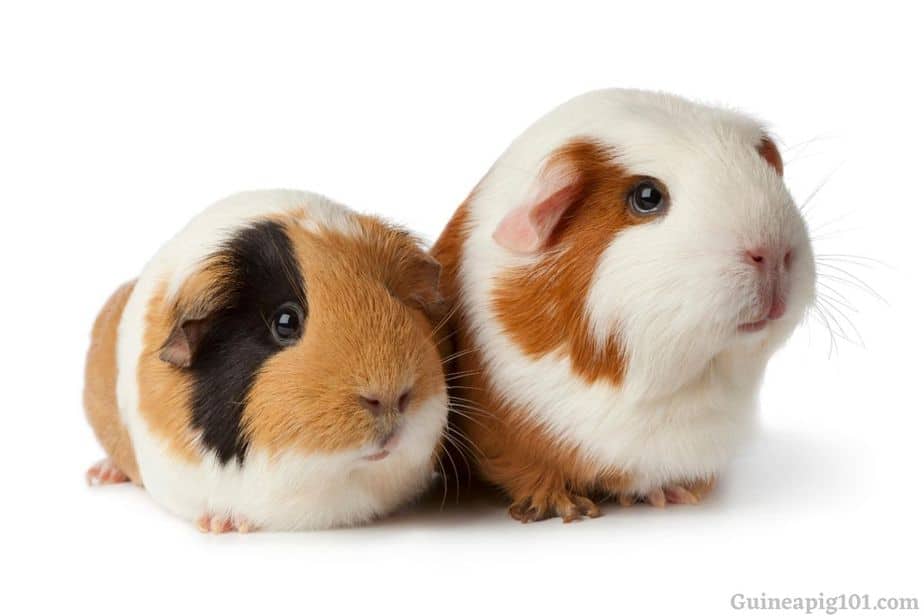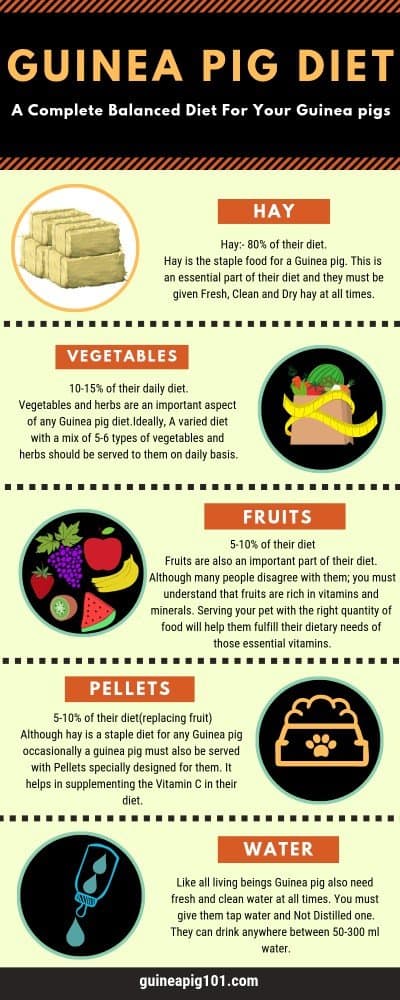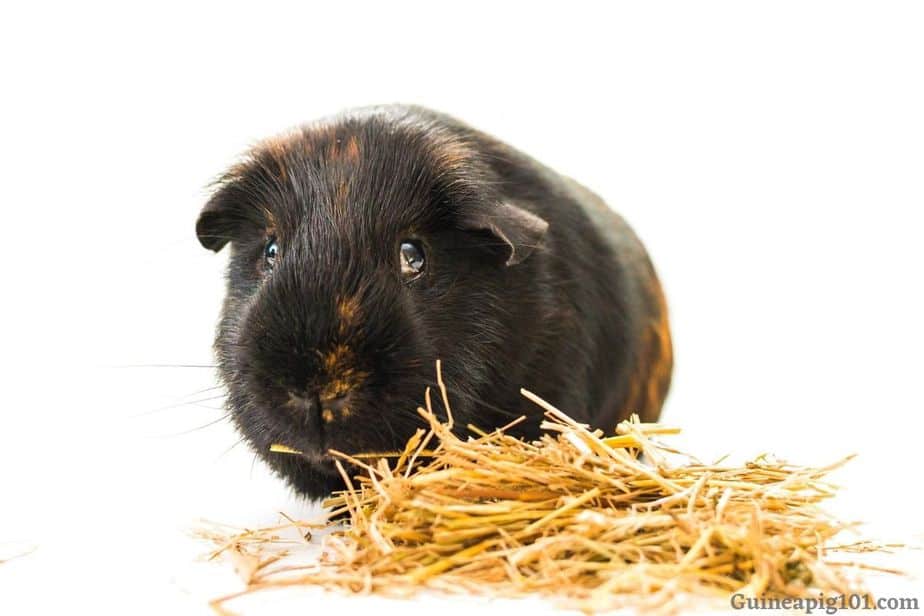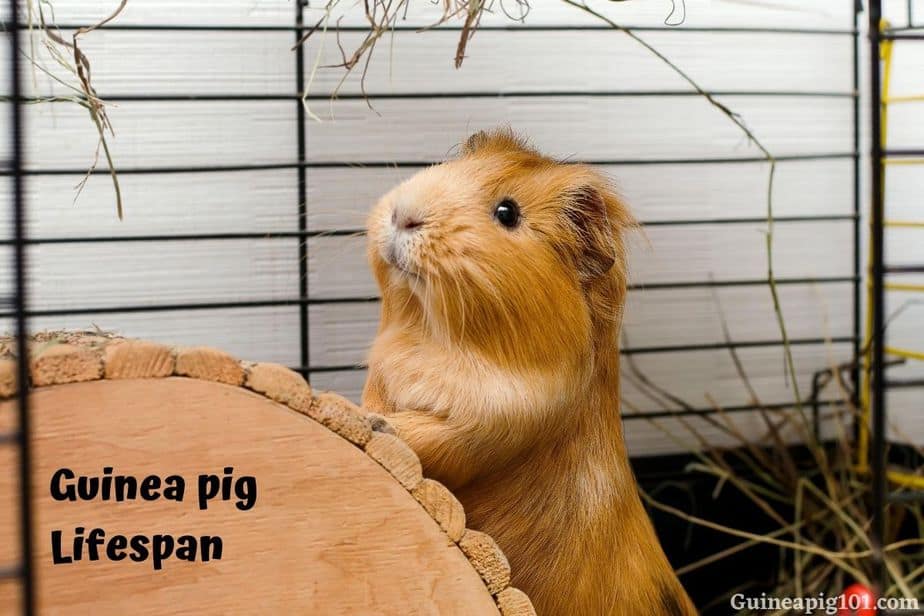Getting a pet for yourself is an extraordinary commitment for all of us. And when we think of getting into one such commitment, we want to know on the first hand that how long will the responsibility be for?
So a few years earlier, I was thinking of getting myself a Guinea pig and was wondering how long do Guinea pigs live as pets? And here is what I found out.
On average, a Guinea pig can live anywhere between 4 to 8 years. But some guinea pigs were even recorded residing for more than ten years. Factors like the care you provide to your pet, Living environment, Breed and genetics affect the lifespan of guinea pigs.
Guinea pigs are hardy creatures that can live for a long time, even in some harsh situations.
But in captivity, they are entirely dependent on us for their well being. How long will our Guinea pig live will ultimately depend on us.
It is our responsibility to take care of our Guinea pig and provide them with the best of everything so that it can live a long and healthy life.
Guinea Pig Lifespan
Guinea pigs usually have a longer lifespan as compared to other rodents. While other small rodents like mice, hamster life for an average of 1-3 years,
A guinea pig can usually live an average of 5-7 years with proper care. Guinea pigs have been even recorded to live for more than a decade, but that’s a rare view to be seen.
Having a guinea pig as a pet binds you in the commitment, which is generally going to last for more than 4-5 years, at least.
So you must be well prepared for the same. It would be best if you kept in consideration that someone needs to be present all the time to take care of your pets as they are going to need fresh food and water every day along with the daily maintenance.
If this looks like a lot of commitment to you guys, then you better look into considering other pets like hamster mice, etc. which tends to live shorter.
What is the life expectancy of guinea pigs living in captivity?
If we can provide our Guinea pigs with the right care and fulfill all their basic needs, then these furry little companions can last you for eight years too.
Although some species of guinea pigs live longer than the other one, genetics is another factor that affects its lifespan.
Here are some of the common breeds of guinea pigs along with their average lifespan in captivity:
| Guinea Pig Breeds | Average Lifespan |
|---|---|
| American Guinea Pig | 6-7 Years |
| Crested Guinea Pigs | 5-6 Years |
| Abyssinian guinea pigs | 5-7 Years |
| Peruvian Guinea Pigs | 7-8 Years |
| Skinny Guinea Pigs | 4-5 years |
| Texel Guinea Pigs | 4-6 Years |
| Teddy Guinea pigs | 4-5 Years |
| Himalayan Guinea Pigs | 6-7 Years |
| Sheltie Guinea Pigs | 7-8 Years |
| Rex Guinea Pigs | 4-5 Years |
Remember that in captivity, Guinea pigs are relatively dependent on us for all their needs.
We are the ones who will decide what food they will eat, what conditions they will live in.
So, if we provide them with the right balance of everything, they will happily live a long life.
How long do guinea pigs live in the wild?
In wild Guinea, pigs usually have a shorter lifespan as compared to the captive breed. They typically live for around four years.
But why is there so much difference? The guinea pig we buy today is all captive-bred.
They were bred in such a way that their genetics differ a lot from the wild ones.
You will not find the species we keep at home in the wild. This is the primary reason why guinea pigs in the wild have a shorter lifespan.
Does the lifespan of Guinea pig depend on its breed?
Yes, The breed of a Guinea pig is a deciding factor of their lifespan.
According to studies carried out by different Institutions, the hairless guinea pigs and other exotic breeds of Guinea pigs live a shorter life as compared to others.
Guinea pigs breed like Skinny Guinea pig, Teddy Guinea pigs, Rex guinea pigs often have a shorter lifespan as compared to American guinea pigs, Abyssinian guinea pigs, and other similar Guinea pigs.
The modified genes among them make them more susceptible to diseases, which often leads to cutting short of their lifespan.
They also have a low immunity power as compared to others, so they need to be paid more attention to.
Do male Guinea pigs live longer than female Guinea pigs?
Some studies do claim that a male guinea pig enjoys a longer lifespan as compared to females.
Now, this usually depends upon a lot of factors like the breed, how well they are taken care of, genetics, etc.
Studies do claim that a female who is bred more often have a shorter lifespan. This is mainly due to a few reasons the proper care of the diet and living condition was not taken care of during and after pregnancy.

There can be many other factors involved, too, but that’s something I read while researching about them.
How can you tell how old your guinea pig is?
It is really tough to determine the exact age of your Guinea pigs until and unless you have bred them by yourself.
In general, determining the age of the guinea pigs could be a tough nut to crack. But I have got a few tricks up my sleeves to help you out.
- Nails: Generally, young guinea pigs have short and pointed nails. By the time they grow up above one year of age, their nails tend to grow longer, thicker, and rounder in diameter. They will also have transparent nails at a very young age, which are typical to get tinted yellowish when they grow about one year or more.
- Toes: As guinea pigs grow, its toes tend to roll. This roll usually starts from the front toes and ends up inward at the back or larger toes. The toes tend to end up twisted to the outside of the feet and may even thicken in the process.
- Teeth: A young guinea pig is usually born with a small set of teeth that are white in color and small. As it ages up, the teeth will start getting yellow, and somewhat have ridges and sometimes even breaks partially.
How can we help our Guinea pigs live longer?
Now, I know that by now, you have learned that guinea pigs live for quite a long time.
But what does that entails to you as the pet owner? Is the care of a guinea pig really that difficult?
How can we make it easier on yourself and your pet snake? How can we provide them with the best of their needs and help them live a healthy life?
Don’t worry, I have learned a lot about them, and I am here to share my experience with you all.
There are a lot of things to take care of besides the feeding schedule and cleaning schedules when you get yourself a guinea pig.
You will need a Large cage, Proper diet, toys, etc.
Let’s get into the nitty-gritty of what you need to do to ensure your guinea pig a healthy long life.
Right Habitat for Guinea pig
Let’s start with the essential thing needed for your Guinea pig. Let us assumed you have decided to buy a guinea pig and keep it as a companion pet.
The first and foremost thing you will need is the right habitat for your Guinea pig. Getting the right cage for guinea pig would be the first step you need to consider.
While purchasing the pen, you must first consider the fact that you get a cage that is the right size for them even after they grow to their adult sizes.
Guinea pigs grow at a rapid pace, and many beginners buy the cage of quite a small size by judging there sizes as a youngster.
But it would be best if you actually purchased an enclosure which is at least 5-6 sq. Feet. This will ensure you don’t run short on space when your guinea pigs grow older.
After you have got the cage, you need to find the right location to place the cage.
Place a cage in such a place where there is a stable temperature. Guinea pigs are prone to various diseases when the temperature fluctuates.
You will also need to get proper bedding for the cage. Choose the one that helps in controlling the smell.
Now with that setup done, the next would be adequate food and water dishes/bottles along with a few chewing toys. Guinea pigs just love to chew on things.
You will also need to provide them with shelter or some hiding places where they can relax and take a nap every once in a while.
Quick tips:
- Get a cage that is easy to clean as you will find yourself doing the maintenance daily.
- Make sure the cage is light as well as sturdy enough to keep your guinea pigs safe.
- Try to create some playing space in the cage so your guinea pig can exercise and play around.
- Letting them loose in the house or some play area every day for an hour or so would be excellent. This will ensure they have enough workout to keep them fit and healthy.
A balanced diet for guinea pigs?

Maintaining a balanced diet for your guinea pig can be a little tricky at first.
You need to achieve a balance of calcium, vitamins, and fiber in the diet. In general, the intake of a young Guinea pig has higher calcium in it, and as it grows older, the calcium content in the food is lowered.
Maintaining the right balance is quite crucial. In general, the balanced diet of Guinea pig consists of the following:
- Hay: Depending upon the age of the guinea pig, they are served either with timothy hay or alfalfa hay. Hay usually consists of 80% of their diet. It helps in maintaining the right amount of fiber in their body, regulates their digestive health as well as helps in keeping their teeth worn out, which seems to be ever-growing.
- Fresh Vegetables and herbs: Fresh vegetables and herbs often consist of the remaining 10-15% of their diet. While serving them vegetables and herbs, we often consider getting a balance of high vitamin C and less calcium and Phosphorous. Vitamin is something really essential for guinea pigs as they cannot produce it on their own.
- Pellets or fresh fruits: Fresh fruits and pellets are often used as a supplement for providing guinea pigs with that extra punch of vitamin C. They usually consist of 5-10% of the guinea pig’s diet. Some people like to serve pellets while some prefer fresh fruits. Whatever we do, we must provide a well-balanced diet to our Guinea pigs.
- Water: The fresh and clean water must be made available to guinea pigs at all times. The consumption of water differs from one Guinea pig to another.

Health problems
Now that you have your Guinea pig, you probably want that it lives a healthy and long life.
No one wants to see their pet getting unhealthy or sick. It could ultimately cut short a significant lifespan of your guinea pigs.
So, let us learn about some of the most basic diseases diagnosed in Guinea pigs.
Respiratory Infection
Pneumonia or respiratory infection is one of the most commonly found diseases among guinea pigs.
A bacteria called Bordetella and streptococcus usually causes it. This bacteria usually spread by direct contact, Air-borne and by infected touch.
The most common symptoms would be unusual diet, discharge from eyes and nose, and troubled breathing.
Diarrhea
The guinea pigs have a susceptible digestive system. There is a proper balance of good bacteria and harmful bacteria in their system.
If due to a lousy diet, frequent diet changes, or due to certain bacterial or parasitic infection, the balance is offset, then the harmful bacteria will take over and harm their digestive tract.
Other signs of diarrhea are low body temperature, unusual diet, and dehydration.
Scurvy
Scurvy is a common disease diagnosed in guinea pigs. This disease is usually caused by a lack of Vitamin C in the guinea pig’s diet.
The most common symptoms of scurvy are Swollen feet, rough hair coat, Diarrhea reluctant to walk correctly, etc.
Tumors
Tumors are other common disease diagnosed in Guinea pigs. An unusual bump on the skin or other parts of the body can be seen in this disease.
Urinary problems or bladder stones
Bladder stones are yet another Disease diagnosed among guinea pigs usually. Usually, stones are formed in their kidneys or bladder.
It is generally caused due to the calcification of extra calcium in their bodies. This is the reason a low calcium diet is recommended for guinea pigs.
Difficulty in urinating, blood strains in urine, etc. are common symptoms of Bladder stone.
These are some of the most common health issues seen in Guinea pigs.
I personally recommend that you pay a visit to your local Vet if you find any of these symptoms for more than 24 hours.
Guinea pig health can go from good to worst in a matter of a few hours. So getting the right treatment done is something to consider.

Related questions
Can a guinea pig die of loneliness?
Yes, A guinea pig can die of Loneliness in certain situations. Guinea pigs are social animals in general.
When we get a guinea pig, we must consider getting a pair or being a good companion by devoting them time.
What I mean with that is playing and spending time communicating with your guinea pig. Being lonely can affect their psychological health and may even lead to death.
What’s the oldest age a guinea pig has ever lived?
According to the Guinness book of world records, the longest living guinea pig had a lifespan of 14 years and 10.5 months.
It was named snowball, who died back in 1979. In general, a Guinea pig does live for 4-6 years on average, whereas some tend to live up to 8 years too on the higher side.
Sources: Guinea pig, Guinea pig aging, Diseases in pet guinea pigs, Biology of the Guinea Pig, The Domestic Guinea Pig
